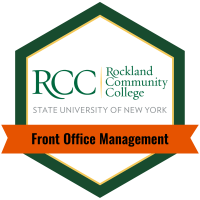Description
 Administrative support services are expected to grow by 22% in the next few years. Thus, there will be a large need for front office managers in all business sectors. A front office manager is responsible for overseeing the daily operations of the front office of an organization, and supervise the staff to ensure they perform their duties in an appropriate manner. Employers require that this individual have strong communication skills as they will be communicating with employees, customers and the owner of the business. A knowledge of U.S. employment laws is also a great asset. This series of courses in business communications, management and human resources will be a great asset to an individual wanting to become a front office manager as well as to the company that employs them. Upon the successful completion of these classes the student will receive a digital badge in Front Office Management.
Administrative support services are expected to grow by 22% in the next few years. Thus, there will be a large need for front office managers in all business sectors. A front office manager is responsible for overseeing the daily operations of the front office of an organization, and supervise the staff to ensure they perform their duties in an appropriate manner. Employers require that this individual have strong communication skills as they will be communicating with employees, customers and the owner of the business. A knowledge of U.S. employment laws is also a great asset. This series of courses in business communications, management and human resources will be a great asset to an individual wanting to become a front office manager as well as to the company that employs them. Upon the successful completion of these classes the student will receive a digital badge in Front Office Management.
Courses Required
BUS 10800 - Business Communication
Description:
This course focuses on the importance and development of effective oral and written communication in the workplace. Appropriate techniques will be applied to the preparation, composition, and revision of traditional business documents, resumes, and electronic communications. Formatting, research techniques, and the use of visual aids and correct mechanics will be emphasized. Oral communication skills will be demonstrated through the delivery and evaluation of presentations and group work activities.
MGT 15010 - Principles of Management
Description:
The principles and practices of management are introduced in this course. Major schools of management theory will be discussed. The role of physical activity and a healthy lifestyle to improve work productivity will be included. The management functions and its role in organization are presented while discovering numerous management techniques including planning, organizing, staffing, leading and controlling.
MGT 20200 - Human Resource Management
Description:
An introduction to the key role that human resource management plays in an organization’s success. Topics covered will include: talent acquisition and retention; employee engagement; learning and development; total rewards; HR in the global context; diversity and inclusion; risk management; corporate social responsibility; U.S. employment laws and regulations; structure of the HR function; organizational effectiveness and development; workforce management; employee relations; technology, data and ethics.
Pre-requisite(s): None
Method(s) of delivery: Online, in-person
Credit or Non-credit: Credit
Minimum Grade Proficiency: B
(Grades will be recorded on the student’s transcript. Students who meet the grade proficiency are eligible to earn the microcredential. If a grade is earned below the proficiency level, the course grade cannot be used toward the microcredential, but is eligible for graduation requirements.)
Credits Earned Upon Completion: 9
Eligibility Requirements
Anyone can register
Cost
Visit the Student Accounts page for information on tuition and fees.
*Find out if you qualify for NYS Part Time Tuition Assistance for this microcredential by visiting the Financial Aid Office in the Technology Center on the first floor.
For additional information, visit the HESC Non-Degree TAP webpage.
Stackable to Degrees
(This credential is included in the educational opportunities listed below)
Front Office Management Advanced Microcredential
AAS Business Administration
Learn more about our degree and certificate programs.
NACE Career Readiness Competencies
- Career & Self-Development
- Communication
- Critical Thinking
- Equity & Inclusion
- Leadership
- Professionalism
- Teamwork
- Technology
Student Outcomes
BUS 10800 – Business Communications
- Describe the role that listening, writing, and speaking play in the contemporary workplace.
- Compose and revise memos, letters, reports, proposals, resumes, and electronic messages using proper style, format, mechanics, and visual aids in accordance with effective writing techniques and strategies
- Research, create, organize, deliver, and evaluate oral presentations with the purpose of interviewing, informing, and persuading using appropriate delivery methods
- Demonstrate proper techniques and etiquette when preparing for and conducting meetings and telephone conversations
- Explain the process of group problem solving and decision making
MGT 15000 – Principles of Management
- Identify the design and use of organizational structures including human resources
- Describe the various elements of the control function used to monitor productivity and improve quality
- Demonstrate the benefits of collaboration through team management
- Distinguish among the different levels of management identifying the skills necessary for effective, efficient management
- Compare and contrast the levels of organizational planning and examine goal setting and the decision-making process
- Explain effective techniques and theories managers use to lead, motivate, and communicate with a diverse workforce including teams
MGT 20200 – Human Resource Management
- Analyze the problems, strategies and procedures in managing human resources
- Evaluate an organization’s human resource policies and assess their long-term consequences
- Explain current trends in Human Resources, including all applicable laws, labor relations, and global HR management
- Apply metrics and data analysis to human resource management to improve overall company performance.
- Analyze the design and administration of recruitment, training, development, appraisal, and reward systems that complement other HRM changes
Skills
BUS 10800 – Business Communications
- Illustrate written and oral skill techniques
- Produce written documents utilizing effective written techniques that are clear and concise
- Demonstrate oral presentation skills and persuasion concepts utilizing various delivery methods
- Use interpersonal skills to demonstrate various meeting planning techniques and professional competencies
- Coordinate team work and collaboration techniques
MGT 15000 – Principles of Management
- Create and understand internal processes and structures, including HR, by keeping teams organized. Ability to alter internal organizational structures and roles.
- Demonstrate an ability to employ an effective management control function.
- Promote a strong sense of direction and apply leadership skills. Build and support collaboration when setting and communicating goals.
- Demonstrate knowledge of effective and efficient management techniques.
- Evaluate various organizational structures and promote the ones that lead to a successful implementation of business plans. Implement human resources allocation. Delegate responsibilities by setting realistic goals and time frames.
- Employ support, encouragement and motivational practices. Demonstrate ability to lead, communicate and motivate a diverse workforce, including teams.
MGT 20200 – Human Resource Management
- Understanding the business issues that are specific to an organization
- Evaluate current company policies and forecast long-term needs for change
- Demonstrate knowledge of current federal regulatory laws, labor relations trends, and global HR management.
- Use analytics to improve decision-making.
- Be able to manage the flow of talent by developing people and leaders, driving individual performance, and manage employee well-being through financial and non-financial rewards.
Steps to Earning a Microcredential
Step 1: Getting Started Is Easy
New Students
If you want to earn a microcredential only, complete the Microcredential Enrollment Form. Search for the course(s) required (select term and then search for desired classes) and input under Course Information on the Form. (Students may register for more than one course if pre-requisites are met.)
If you plan to earn a degree or certificate and a microcredential and have not applied to the College, apply here. See the Web Registration Instructions to register for classes.
Current Students
If you are a current or continuing student, complete the Microcredential Add Form. You can register for courses in Self Service Banner in your myRCC portal. See the Web Registration Instructions to learn how to search and register for classes in Self-Service Banner. If you are registered for the required courses in the microcredential, you only need to complete the Microcredential Add Form.
Refer to the tuition and course fees page to determine the cost of your courses.
Step 2: Verification
When you have met and completed all of the requirements for the microcredential your credential will be verified.
Microcredentials open the door to career opportunities and to earn one of our degrees or certificates for career advancement. Students may utilize the courses passed in a microcredential toward a degree program pending the courses apply to the degree program selected.
Learn More About Microcredentials
In a highly competitive global economy and rapidly changing workplace, upskilling and reskilling is required by more employers to maintain viability in the workplace. New collar jobs are vastly growing in developing fields. The college has developed relationships with local, state and national industries to create a microcredential system to align with industry standards. It is also becoming a test of speed and relevance in a fast changing, technically oriented job market. Some of our credentials offer internships to provide you with real world experiences. Many students find that earning a microcredential helped them find the right career and continue on to degree completion.
We give you skills to succeed on the job. Candidates with strong soft skills are in high demand. Soft skills, also known as durable skills, are the attributes you need to succeed in the workplace. We offer you the opportunity to develop these skills and emphasize them on job applications, resumes, cover letters, and interviews. We offer several microcredentials in durable skills so you take your knowledge from backpack to briefcase.
Designed to meet you at your lifestyle. We are here to help you develop and accomplish your goals every step of the way. You may decide to on-ramp for a microcredential to obtain in-demand skills or microcredentials are also offered within degree programs. Skills badges can be earned singly or several courses can be stacked to lead to a professional microcredential. Badges are stackable credentials and more granular in scope. Achievement of a microcredential indicates that specific skills and/or competencies have been achieved through bundled credit, non-credit, or non-credit to credit courses with embedded skills needed for today’s marketplace.
Badges and microcredentials are offered in-person, online, a hybrid format with flexible scheduling to meet you at your lifestyle. Visit the course schedule to identify the schedule that is right for you. Microcredentials are a digital form of certification indicating demonstrated proficiency in a specific set of skills. Embedded skills badges in some courses provide an added value to your e-portfolio.
Showcase your new skills and accomplishments. Employers want to know about your new skills. Upon successful completion and verification of a credential, you will receive a digital badge as evidence of attaining your new credential that can be shared in your e-portfolio with prospective employers and on social media platforms.
Our Industry Partners. The College works with industry partners and specialists to ensure information is current and we are meeting the needs of industry to create a pipeline of employable candidates. We listen to our partners’ needs to provide educated learners with the knowledge and skills to fulfill jobs and provide students with transfer opportunities to four-year institutions. Apprenticeship and internship partnerships benefit the employer and the student in gaining knowledge and hands-on or real world experiences.
Why RCC? Higher educational institutions are well known to corporate CEO’s for the academic rigor required to demonstrate knowledge and skills proficiency and providing an excellent education.
The world of work has changed and we provide more options so that you can move ahead. Hundreds of jobs require employees to be prepared for new challenges and provide services that did not exist a year ago. Courses are offered in a variety of formats so you can accomplish your goals on your watch. Microcredentials open the door to earn one of our degree or certificate programs.
What are you waiting for? Your future career starts with applying to the College or completing the Microcredential Enrollment Form.
Whether you need additional skills to navigate your entry into the competitive workforce, have a degree and are looking to expand your skills or are thinking about a degree, a microcredential from one of the leading colleges in the SUNY system is right for you.
Jump start your educational adventure with us.
Microcredentialing FAQs
Why should I earn a microcredential?
Whether you need additional skills to navigate your entry into the competitive workforce, have a degree and are looking to expand your skills, or are thinking about a degree, a microcredential from one of the leading colleges in the SUNY system is right for you.
Each microcredential or skills badge:
- Focuses on in-demand knowledge and skills
- Is backed by course curriculum
- Includes student learning outcomes recognized by industry partners and specialists
How do I earn a microcredential or badge?
A microcredential certifies that a student has attained a specified competency or skill set by successfully completing a group of 2-4 related courses and skills as outlined on the webpage. Once the requirements of a microcredential or skills badge are verified, the student is issued a digital icon that can be embedded on social media platforms, an electronic resume or e-portfolio. These icons are linked to college pages with validating information about the microcredential that prospective employers and education institutions can view.
What does a microcredential do for me?
Microcredentials offer:
- Increased potential employment or promotions by certifying new competencies students have achieved and expanding their skill sets
- The opportunity to move to the next level of obtaining a certificate or degree to secure jobs upon graduation
- Opportunity to seek the next level of higher education
- Increased opportunity to advance your career
- Increased industry knowledge of emerging advancements for professionals already working in industry
- Recognizable highly competitive global market value
Can I use the credits earned in the microcredential toward my degree?
Microcredentials open the door to earn one of our degrees or certificates. Students may utilize the courses passed in a microcredential toward a degree program pending the courses apply to the degree program selected.
What if I do not achieve the grades for the microcredential?
It is important for employers to understand the proficiency level attained when earning a microcredential; therefore, a grade proficiency level has been set for courses included in a microcredential. Students earn grades for the courses taken and all grades appear on the student’s transcript. Students who pass the class but do not achieve the minimum grade proficiency listed on the webpage, will not earn the microcredential, but may utilize the courses passed toward a degree program pending the courses apply to the degree program selected.
Why are we different?
We have developed a program with various pathways to meet your needs. Skills and microcredentials are a pathway of accomplishing credit, non-credit, and non-credit to credit coursework that can be stacked to lead to updated industry skills, a professional microcredential, and degree. The College has developed relationships with local, state and national industries to create a microcredential system to align with industry standards. You will earn a credential from a reputable accredited college that allows you to put your skills right to work or continue on to a degree.
We support our students on their journey. We have many support services including tutoring, advisement that includes career planning, and financial aid. If you begin to struggle with your coursework, tutoring is available at no additional charge.
What does it cost?
The cost of each credential varies based on the number of courses required.
Spotlight on Micro Earners

